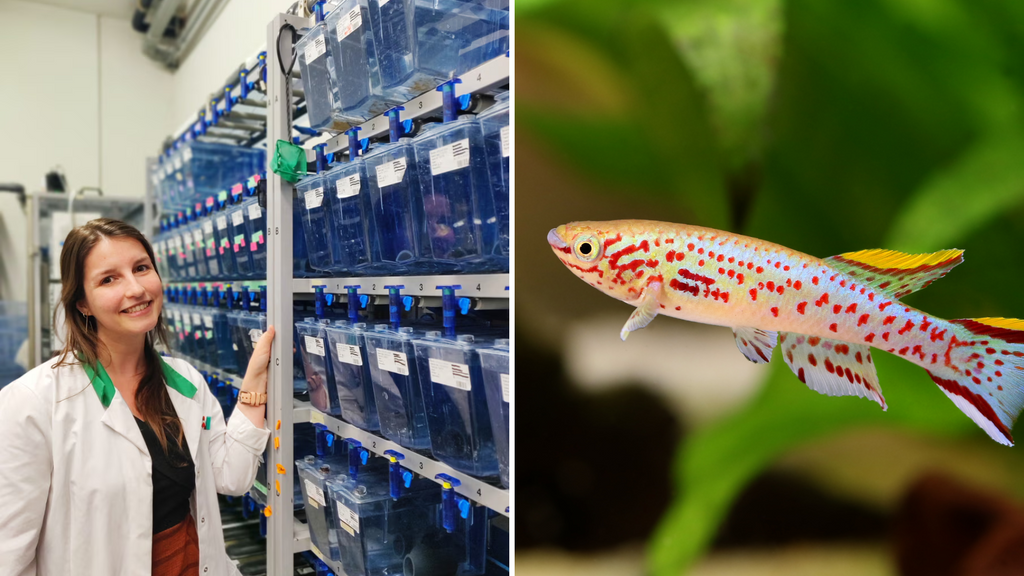Belgian scientific research looking into the effects of a cocktail of two drugs on the brains of aged fish may open the way to new treatments for neurodegenerative diseases, such as Alzheimer's disease.
Some 212,000 in Belgium are currently affected by Alzheimer's disease or another form of dementia in Europe. Over 25% of people over 80 have dementia, while one in five people are at risk of developing dementia in their lifetime. Due to the country's ageing population, this number is expected to rise significantly.
There is currently no cure, but scientists are making advances in research into the disease, including in Belgium. Researchers from KU Leuven tested a treatment using two existing drugs on African turquoise killifish, which complete their entire life cycle within four to six months, making them interesting to scientists.
"Moreover, the ageing process of the killifish resembles that of humans: they turn grey, develop a crooked back and suffer from memory loss (dementia)," a statement from KU Leuven read. Researchers gave older fish a cocktail of two existing drugs and found that this not only rejuvenates their brains but also protects them from future diseases or injuries.
Removing ageing cells
Researchers at KU Leuven looked for the underlying mechanisms responsible for the low repair capacity of old brain cells in the killifish and discovered that the brain is subject to cellular senescence: brain cells that are "diseased" or "aged" secrete harmful substances that prevent the normal functioning and repair of surrounding brain cells, unravelling the processes underlying cellular ageing in the brain.
"We were able to confirm this with a specific staining that allowed us to visualise these ageing cells," said researcher Jolien Van houcke. "The difference between young and old brains was huge, with the old brain showing a large amount of diseased and aged cells."
Drugs that can remove ageing brain cells already exist, but this study was the first to apply these to the old brains of killifish, which were given a combination of two drugs already approved for human use, Dasatinib and Quercetin, for one week.
"Even with this short treatment, we were able to remove 30% of the ageing cells, which resulted in fewer pollutants spreading into the brain. We not only rejuvenated the brain but the brain's repair capacity was also improved: after the treatment, the old killifish had more dividing stem cells that could grow into new nerve cells, something necessary for brain repair after injury or disease."
This combination is already currently being tested in clinical trials, but these involve patients suffering from other diseases caused by "aged" cells in other parts of the body, such as kidney damage in diabetic patients.
Related News
- Belgian scientists make new advances in Alzheimer’s research
- Scientists in Belgium grow 'mini-brains' to treat Alzheimer's in world first
The KU Leuven study confirms that this drug combination could potentially provide a solution for diseases related to the ageing brain, but further clinical studies are needed to demonstrate the effects in humans.
"We have now tested a very short treatment," said Van houcke. "But we are now wondering whether a longer treatment will produce even better results. That is what we will now initially explore further, with the help of killifish."

